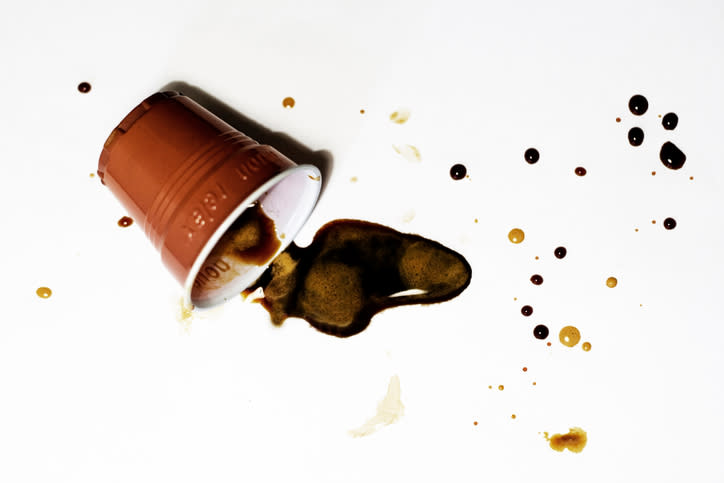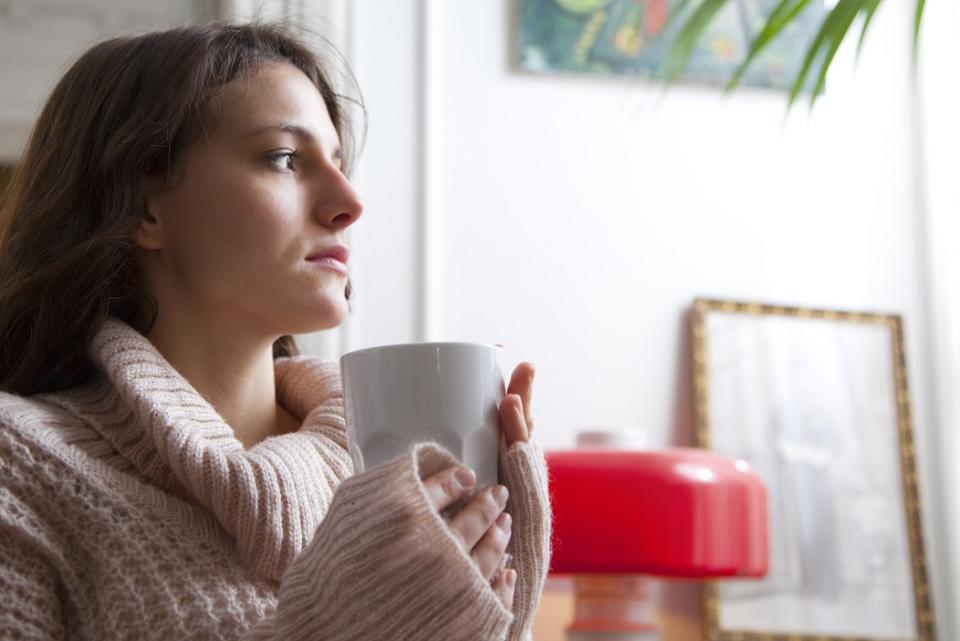Is Coffee Damaging Your Mental Health?

[Photo: Getty]
Life doesn’t stop when you’re feeling low. Deadlines, recycling and that HMRC phone call that you’ve been putting off aren’t going anywhere, and it can feel like your 8am latte is the only thing helping you to keep it together.
But is fighting our lethargy with Starbucks actually pushing our brains to the limit?
“I’ve used coffee to try and counteract the tiredness and lack of motivation my depression can cause,” says Meg, a 23-year-old English literature graduate. “It worked for a bit but then I’d crash and feel more anxious and almost out of control.”
Meg’s experience is far from all in her head. According to Niels Eék, psychologist at mental wellbeing app Remente, caffeine’s effects on our bodies can mimic the symptoms of some mental health conditions.
He says: “Symptoms of caffeine intoxication, caffeine induced insomnia and caffeine induced anxiety can have a lot in common with disorders such as OCD and anxiety, leaving individuals feeling fatigued, unable to concentrate and experiencing headaches.”
Though Eék says there has been limited research into links between caffeine and mental health, if you think caffeine may be exacerbating symptoms of a condition like anxiety or OCD, he advises cutting down or cutting it out completely.

[Photo: Getty]
“When I’m anxious about work, I drink a lot of coffee to help me hit deadlines but I just find myself getting panicky, my thoughts are totally scattered and I can’t cope in social situations,” says Lewis, a 26-year-old academic. “I’ve learnt to limit my caffeine intake when I feel I most need the coffee - I actually get more done that way.”
According to Dr Nerina Ramlakhan, sleep and energy expert at the Nightingale Hospital, caffeine can compound existing mental health conditions.
“People are pushing themselves biochemically into a state of imbalance where agitation, anxiety, mood disorders and even addictions can become more pronounced,” she says.
Both experts, unsurprisingly, prescribe more sleep and a consistent sleep pattern to help kick the coffee. But if your evenings are more likely to be spent working than counting sheep, there are other alternative ways to stimulate your brain.
Dr Ramlakhan suggests having breakfast within 30 minutes of getting out of bed and swapping your Sugar Puffs for some protein (for example, porridge topped with chopped nuts).
“Eat little and often during the day – when you would usually have a caffeinated drink have a healthy snack instead,” she adds.
Niels Eék says that natural stimulants can be a good way of weaning yourself off those quadruple espressos.
He says: “Chewing gum is a good alternative as chewing increases blood flow to the brain, which stimulates the nervous system and improves alertness.”
He adds: “You can also try switching on the lights or, if possible, increasing their brightness. Darkness and sleep go hand in hand for a reason, so increasing the amount of light around you will make your brain more alert.”
A pack of Wrigley’s may not sound as much fun as your morning visit to Pret but cool spearmint has to trump coffee breath, right?
There’s A Reason Your Hangovers Are So Much Worse When You’re Older

